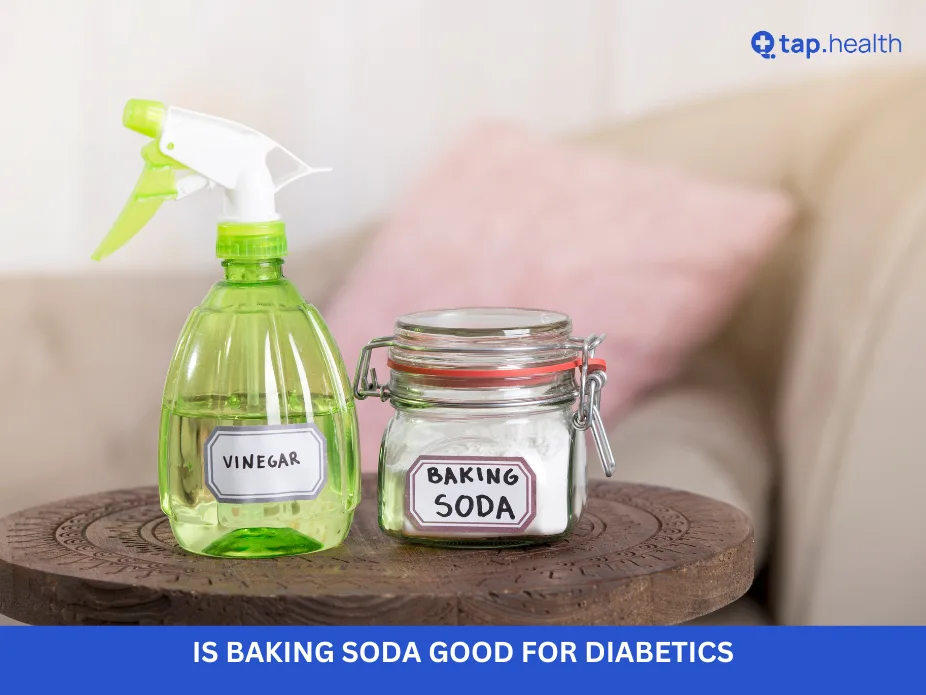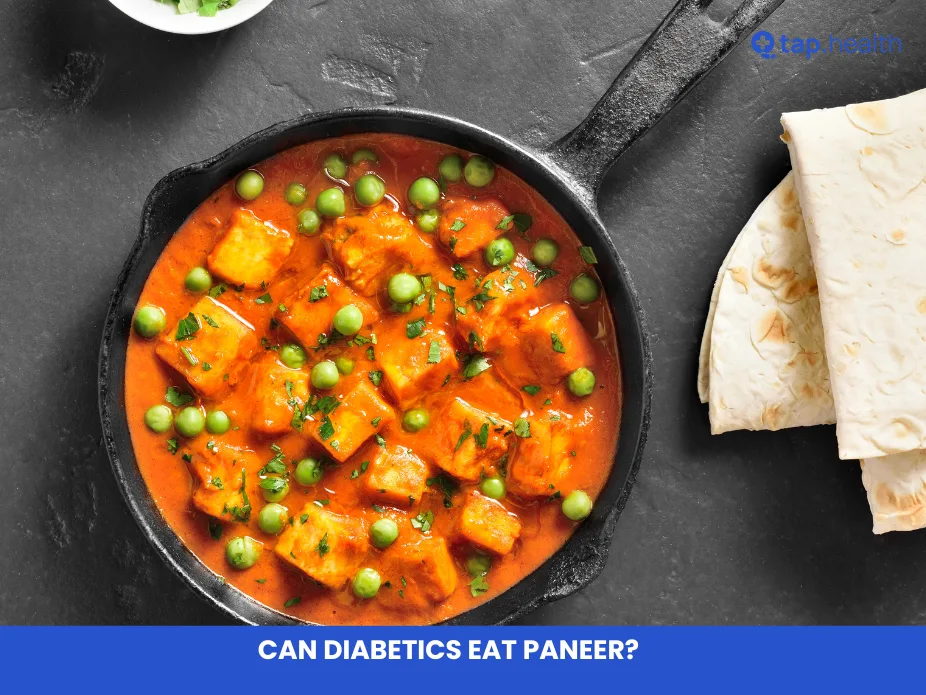Baking soda, also known as sodium bicarbonate, is a common household ingredient often used in cooking, cleaning, and personal care. But can it be beneficial for individuals with diabetes? Many people wonder whether baking soda can help manage blood sugar, control diabetes symptoms, or even assist with other related health issues.
In this article, we’ll explore the possible benefits, risks, and practical uses of baking soda for diabetics. We will discuss its role in blood sugar control, its effects on the body, and how it can be incorporated into a diabetic-friendly lifestyle. By the end of this post, you’ll have a clear understanding of whether or not baking soda is good for diabetes management.
What Is Baking Soda?
Baking soda, or sodium bicarbonate, is a fine white powder with various household uses. It’s often used in cooking as a leavening agent, in cleaning for its abrasive and deodorizing properties, and even in personal care for tasks like whitening teeth.
How Baking Soda Works in the Body
When consumed, baking soda reacts with acids in the body, producing carbon dioxide and water. This chemical reaction is why baking soda is useful in cooking, but it can also have an impact on your digestive system and overall body pH levels. This is particularly important when considering how baking soda might interact with conditions like diabetes.
Can Baking Soda Help Manage Diabetes?
While baking soda is not a cure for diabetes, some research suggests it may have potential benefits when used as part of an overall healthy lifestyle. Let’s break down the potential benefits of baking soda for diabetics.
1. Alkalizing Effect on the Body
One of the proposed benefits of baking soda is its ability to help balance the body’s pH levels. The theory is that a more alkaline body can function better, reduce inflammation, and improve overall health. This could be particularly important for diabetics, as high blood sugar levels can cause an acidic environment in the body, contributing to complications like kidney disease, cardiovascular issues, and more.
While some studies show that maintaining a more alkaline environment in the body may help reduce the risk of certain diseases, more research is needed to understand how effective baking soda is in achieving this balance. That said, maintaining a balanced pH through a healthy diet and lifestyle remains crucial for people with diabetes.
2. Reducing Acid Reflux and Heartburn
Many diabetics suffer from acid reflux or gastroesophageal reflux disease (GERD) due to the impact high blood sugar levels can have on the stomach and digestive system. Baking soda is known to neutralize stomach acid and temporarily relieve symptoms of acid reflux and heartburn.
How It Helps:
- Neutralizing stomach acid: Baking soda can act as an antacid, helping to neutralize the acid in your stomach that causes discomfort.
- Temporary relief: If you’re struggling with heartburn, a small dose of baking soda in water can offer temporary relief.
3. Improving Kidney Health
Diabetics are at a higher risk for kidney disease due to the strain high blood sugar places on the kidneys. Some studies suggest that bicarbonate (the compound in baking soda) may help prevent kidney damage by reducing acid buildup in the body. Since bicarbonate is naturally produced by the kidneys to neutralize acid, supplementing with small amounts of baking soda could potentially help reduce the workload on the kidneys.
4. Improving Exercise Performance
For diabetics, maintaining a healthy weight and staying active is essential for managing blood sugar levels. Some research indicates that baking soda may improve athletic performance by buffering lactic acid buildup, which could lead to improved endurance during exercise. Since regular exercise helps lower blood sugar levels and improves insulin sensitivity, incorporating baking soda before workouts may indirectly support diabetes management.
5. Boosting Digestion
Baking soda’s alkalizing effect may help with digestion by neutralizing excess stomach acid. Some diabetics experience digestive issues such as bloating, indigestion, and constipation, and using baking soda as an occasional remedy may help ease these symptoms.
The Risks of Using Baking Soda for Diabetics
While there are some potential benefits to using baking soda for diabetes management, it is important to understand the potential risks as well.
1. High Sodium Content
Baking soda is high in sodium, which can pose a significant risk for people with diabetes. Excessive sodium intake can lead to high blood pressure, which increases the risk of heart disease—a condition that is already a concern for people with diabetes.
If you are using baking soda as a remedy for heartburn or indigestion, be cautious about how much you’re consuming, and avoid using it regularly. It’s always a good idea to consult with your healthcare provider to determine if baking soda is safe for you, especially if you have a history of high blood pressure or cardiovascular issues.
2. Risk of Overuse
Although baking soda is considered safe in small amounts, overuse can lead to an electrolyte imbalance, which can be dangerous. Using large amounts of baking soda to neutralize stomach acid, for instance, could lead to problems like:
- Alkalosis: A condition where your body’s pH becomes too alkaline.
- Impaired kidney function: Overuse of baking soda may affect kidney health, especially if you already have kidney disease.
- Gas and bloating: Too much baking soda can cause excessive gas production and bloating, leading to discomfort.
3. Interference with Medications
Baking soda can interact with certain medications, including those used to control blood pressure and diabetes. It can alter the effectiveness of some medications, particularly if consumed in large amounts. Always consult your doctor before using baking soda as a supplement, especially if you’re taking prescription medications.
4. False Sense of Control
Relying on baking soda as a “quick fix” for diabetes symptoms could lead to neglecting more important lifestyle changes. Managing diabetes requires consistent effort, including:
- Proper diet: Focus on eating a balanced diet low in refined sugars and processed foods.
- Regular exercise: Stay active to improve insulin sensitivity and blood sugar control.
- Medication management: Take your prescribed medications as directed by your doctor.
Key Takeaway: Moderation is Key
While baking soda may offer some temporary benefits, it’s important to use it in moderation and as part of a well-rounded diabetes management plan. It should not be used as a substitute for proper medical care, a balanced diet, or regular physical activity.
How to Safely Use Baking Soda for Diabetes
If you decide to incorporate baking soda into your diabetes management routine, here are some safe ways to do so:
1. As an Antacid
For occasional heartburn or acid reflux, you can dissolve half a teaspoon of baking soda in a glass of water and drink it. This will help neutralize stomach acid and provide relief from symptoms. However, limit the frequency of use to avoid overconsumption of sodium.
2. As a Digestive Aid
If you’re prone to indigestion or bloating, you can mix a small amount of baking soda with water to help improve digestion. Keep in mind that this should be done occasionally and not as a daily remedy.
3. Use in Bathwater for Alkalizing Effect
Some people with diabetes use baking soda in their bathwater to help balance their body’s pH levels. While this may have a relaxing and soothing effect, it’s important to remember that this method will not directly impact blood sugar control.
Real-Life Scenario
A diabetic patient reads online that drinking baking soda water may help with blood sugar control. They start taking it daily without consulting a doctor. After some weeks, they experience bloating, high blood pressure, and discomfort. This shows why it’s important to rely on medical advice instead of unverified home remedies.
Expert Contribution
Doctors and dietitians caution that while baking soda is safe in small amounts for cooking (like in baked goods), using it as a daily supplement can be harmful, especially for people with diabetes. Experts recommend focusing on proven methods for diabetes management, such as balanced diet, exercise, prescribed medications, and regular monitoring of blood sugar.
Recommendations Grounded in Proven Research and Facts
- Avoid self-medicating with baking soda to manage diabetes—it has no proven benefit for blood sugar control.
- Use it only in cooking and within safe limits.
- Consult your doctor before trying any natural or home remedy for diabetes.
- Focus on evidence-based strategies like diet, exercise, and medication for effective diabetes control.
- Be cautious with sodium intake, as high sodium can increase risks of heart and kidney problems in diabetics.
FAQ on Is Baking Soda Good for Diabetics?
1. Is baking soda safe for diabetics?
Yes, baking soda can be safe for diabetics when used in moderation. However, due to its high sodium content, it’s important to use it cautiously and consult with a healthcare provider before using it regularly.
2. Can baking soda help lower blood sugar?
There is no direct evidence to suggest that baking soda can lower blood sugar levels. However, it may offer other benefits like improving digestion, reducing acid reflux, or supporting kidney health, which can indirectly contribute to better diabetes management.
3. How much baking soda should I take for heartburn?
For occasional heartburn, mix half a teaspoon of baking soda with a glass of water. Avoid using it frequently, as excessive consumption of sodium can be harmful, especially for diabetics with high blood pressure or kidney problems.
4. Can baking soda help with kidney health in diabetics?
There is some evidence that suggests small amounts of baking soda may help reduce acid buildup in the body, which can reduce stress on the kidneys. However, always consult your doctor before using it, especially if you already have kidney disease.
5. Are there any side effects to using baking soda for diabetes?
Overusing baking soda can lead to negative side effects like high sodium levels, alkalosis (too much alkalinity in the body), and gastrointestinal discomfort. It’s important to use baking soda cautiously and not as a substitute for more effective diabetes management strategies.
6. Should I replace my diabetes medications with baking soda?
No, baking soda should never replace prescribed diabetes medications. It may offer some temporary relief for symptoms like heartburn, but it cannot control blood sugar levels or manage diabetes effectively on its own. Always follow your doctor’s advice and treatment plan.
Conclusion
In conclusion, baking soda may offer some benefits for managing certain symptoms related to diabetes, like acid reflux and indigestion, but it should be used with caution. Its high sodium content and potential for side effects make it important to consult with your healthcare provider before using it regularly. As part of a balanced approach to diabetes management—including a healthy diet, regular exercise, and prescribed medications—baking soda can be a useful tool for occasional relief but should not be relied upon as a primary treatment.
By understanding both the benefits and risks of baking soda, you can make informed decisions about incorporating it into your diabetes care plan. Always prioritize a comprehensive approach to managing your condition for the best long-term results.



